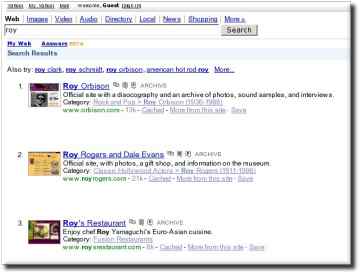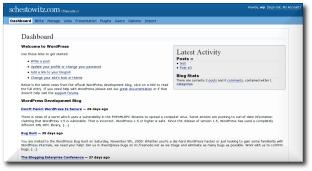
 OMMERCIAL software advocates will often have you fooled. Industrial leaders (and their employees) will have you believe that “you always get what you paid for”. Poor products deliver bad results is the subtle implication. It is a fallacy, however, which keeps brainwashing the older generation more than anybody else. It ignores context, which in this case is software. It also relies on a gross generalisation of popular-yet-trite tidbits.
OMMERCIAL software advocates will often have you fooled. Industrial leaders (and their employees) will have you believe that “you always get what you paid for”. Poor products deliver bad results is the subtle implication. It is a fallacy, however, which keeps brainwashing the older generation more than anybody else. It ignores context, which in this case is software. It also relies on a gross generalisation of popular-yet-trite tidbits.
Many things are free nowadays. Even music is finally distributed for free, given generous bands that seek exposure and fame. “You get what you paid for”, you see, is an old proverbial saying, which treads back to an era that predates technology. It was conceived before software came into existence; before R&D investments were a principal factor of cost, let alone bandwidth or distribution through CD‘s.
Software is not physical. You need never manufacture 10 million ‘Apaches’ for all the different active Web sites. You need only make the code available for download, at which point it duplicates itself. This is why Unisys and Apache (among others like Oracle and IBM) falsify and shatter the long-term potential of commercial software. As a famous film once suggested (slanted quote), “when people have already built it, it will come”.
The Internet makes programs readily avaliable, which has lad to the gradual demise of shrink-wrapped software. Similarly, the Internet has had a negative/positive impact on journalism, depending on which side you are on. Small sites and independent ‘journalists’ (often bloggers) continue to obviate the need for the daily paper. Fear looms not only over Microsoft and The Wall Street Journal. Quieter, lower-profile vendors like Cisco are under threat too. Open Source communication protocols and routes, as well as VoIP and IPTV are in the making or already ‘in the wild’. In due time, they will expand and kill the industrial state-of-affair as we presently know it.
The notion of cost and independence from manufacturing extends further. Analogously, intellectual property has had value which was never truly physical. Software represents a different case altogether. When open, intellectual property or patents are out of the question (at least in the EU). Software can be duplicated and people realise that the prevalence of the Internet only gives a boost to a world-wide openness/freedom (freedom of choice, freedom to change, and free of charge): information-wise (let Wikipedia inspire you) and software-wise. Nobody can stop the customer’s demand, not even with DRM, which to many vendors was a last resort.
“You get what you paid for”, one says? Precisely so. For nothing at all you can get the world in our modern age.

 AST year (July 2005 to be precise), I conceived a hypermedia system/Web browser wherein page previews get put adjacent to incoming/outgoing links. Such previews should serve as somewhat of a screenshot that rids the need to explore deeper. They give the surfer a shallow preview, making arrival at pages more rhetoric or unneeded. The surfer can become selective based on the appearance of the destination page.
AST year (July 2005 to be precise), I conceived a hypermedia system/Web browser wherein page previews get put adjacent to incoming/outgoing links. Such previews should serve as somewhat of a screenshot that rids the need to explore deeper. They give the surfer a shallow preview, making arrival at pages more rhetoric or unneeded. The surfer can become selective based on the appearance of the destination page.





 Filed under:
Filed under: 
 nevitably, with higher bandwidth, more connected nodes, and little supervision (other than endless censorship), Chinese spam is gaining steam. That said, 80% of all spam was recently said to be despatched from
nevitably, with higher bandwidth, more connected nodes, and little supervision (other than endless censorship), Chinese spam is gaining steam. That said, 80% of all spam was recently said to be despatched from 


 HEM….
HEM….
 OMMERCIAL software advocates will often have you fooled. Industrial leaders (and their employees) will have you believe that “you always get what you paid for”. Poor products deliver bad results is the subtle implication. It is a fallacy, however, which keeps brainwashing the older generation more than anybody else. It ignores context, which in this case is software. It also relies on a gross generalisation of popular-yet-trite tidbits.
OMMERCIAL software advocates will often have you fooled. Industrial leaders (and their employees) will have you believe that “you always get what you paid for”. Poor products deliver bad results is the subtle implication. It is a fallacy, however, which keeps brainwashing the older generation more than anybody else. It ignores context, which in this case is software. It also relies on a gross generalisation of popular-yet-trite tidbits.
